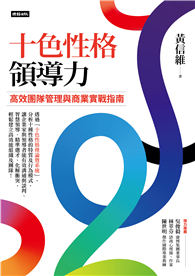The contemporary educational landscape in the Philippines is marked by dynamic challenges and opportunities shaped by historical, cultural, and societal forces. As the nation’s education system evolves, issues like resource allocation, curriculum alignment, and equitable access remain pressing concerns, exacerbated by recent global disruptions such as the COVID-19 pandemic. The shift to online learning highlighted significant gaps in infrastructure and inclusivity, emphasizing the need for resilient educational management practices. Amid these challenges, School-Based Management (SBM) stands out as a critical governance model, promoting decentralized decision-making, local accountability, and stakeholder involvement, which empower schools to tailor strategies to their unique contexts. This approach not only enhances educational outcomes but also fosters community collaboration and sustainability. Additionally, the importance of robust Learning Continuity Plans (LCPs) has become increasingly evident in ensuring uninterrupted education during crises. Despite the recognized significance of SBM and LCPs, a research gap exists regarding their intersection within specific contexts.
| FindBook |
有 1 項符合
Enhancing Learning Continuity的圖書 |
 |
Enhancing Learning Continuity 作者:Luna 出版社:LAP Lambert Academic Publishing 出版日期:2024-08-22 語言:英文 規格:平裝 / 52頁 / 22.86 x 15.24 x 0.3 cm / 普通級/ 初版 |
| 圖書館借閱 |
| 國家圖書館 | 全國圖書書目資訊網 | 國立公共資訊圖書館 | 電子書服務平台 | MetaCat 跨館整合查詢 |
| 臺北市立圖書館 | 新北市立圖書館 | 基隆市公共圖書館 | 桃園市立圖書館 | 新竹縣公共圖書館 |
| 苗栗縣立圖書館 | 臺中市立圖書館 | 彰化縣公共圖書館 | 南投縣文化局 | 雲林縣公共圖書館 |
| 嘉義縣圖書館 | 臺南市立圖書館 | 高雄市立圖書館 | 屏東縣公共圖書館 | 宜蘭縣公共圖書館 |
| 花蓮縣文化局 | 臺東縣文化處 |
|
|
圖書介紹 - 資料來源:博客來 評分:
圖書名稱:Enhancing Learning Continuity
|






![塔木德:猶太人的致富聖經[修訂版]:1000多年來帶領猶太人快速累積財富的神祕經典 塔木德:猶太人的致富聖經[修訂版]:1000多年來帶領猶太人快速累積財富的神祕經典](https://media.taaze.tw/showLargeImage.html?sc=11100697818)




